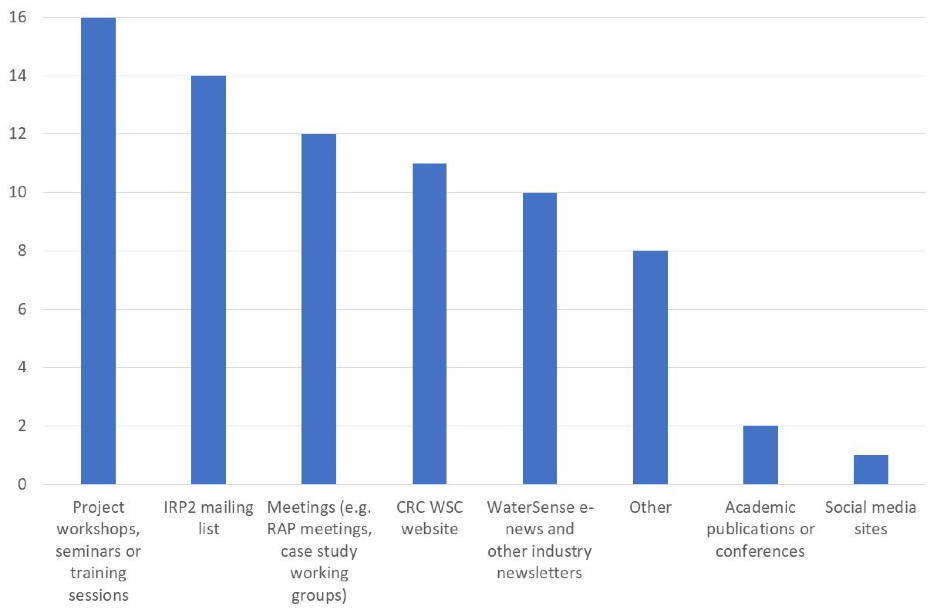What our Participants are saying about IRP2’s comprehensive economic evaluation framework

We asked our Participants about the performance to date of IRP2’s comprehensive economic evaluation framework project. Generally, our Participants support the project’s direction. They think the workshops, meetings and direct contact with team members is either effective or very effective. They are keen to help with adoption activities that support the tools, and they suggested ways we could better engage and communicate with all stakeholders using the tools.
The project is still useful in the current policy and planning environment
When we started IRP2, our aim was to develop tools that could help decision making under current regulatory frameworks. But, policies and planning requirements can change over time, so we wanted to know if there were any major changes that we weren’t aware of, and if we needed to adapt the project to account for them.
Survey respondents reported only minor policy changes since the project began, and that the tools we are developing remain relevant. If anything, recent changes in policies and planning requirements provide more support for water sensitive urban design, and could help with adoption.
Survey respondents think our tools will help with decision making
Two thirds of respondents reported our tools will help water practitioners make better decisions about water sensitive initiatives, but until the tools are finalised, it’s difficult to tell where they will be of most benefit. The remaining respondents reported the tools are relevant.
The use of the tools should help speed up development assessment, not slow it down.
While positive, these results highlight that stakeholders are keen for us to continue engaging with them during the development phase, as the team finalises the tools and framework. And that leads us to the final element of the survey—our engagement activities.
We are engaging and communicating effectively with our Participants, but what about other stakeholders?
All survey respondents thought our engagement and communication activities were either effective or very effective. Workshops, seminars and meetings with IRP2 team members were the most effective.

But, while they considered we were doing a good job with Participants, survey respondents suggested we could do more to engage with other stakeholders, and build capacity to use the tools. Comments included:
There needs to be workshops more broadly than just with CRC Participants. This is considered important to support broader adoption and mainstreaming of the tools.
There needs to be more engagement with ‘non-believers’, such as property developers and treasuries. This could form part of an extended testing stage.
Conferences and similar forums should be used as a way to showcase the tool for senior executives.
While there is strong interest in the tools, there is a need to more proactively convince treasuries and regulators of the benefits of the tool.
More work is required to determine who is the right target audience for the roll out of the tool. This could be different (or in addition to) the organisations that have been involved to date.
More work is still required to increase internal capacity to understand the benefits of WSUD and how to use non-market values information.
Next steps …
We’re responding to this feedback in several ways:
- We’re showcasing the IRP2 tools at the upcoming 4th CRC Water Sensitive Cities Conference, and many other conferences.
- We’ll deliver five training sessions to help end users test the tools across multiple cities.
- Our Project Steering Committee and the CRCWSC regional managers are actively considering which influential organisations and individuals to target that could help with adoption and mainstreaming activities.
- We are planning to work with the Urban Development Institute of Australia (UDIA), to discuss the framework and better understand their needs and knowledge gaps, so that we can better target engagement activities.
- We are planning a dedicated workshop for treasuries and regulators.
If you have any questions about the survey, or IRP2 generally, please contact Tammie Harold: tamara.harold@uwa.edu.au.
About the surveySeed Consulting (on our behalf) surveyed our Participants via an online survey circulated to primary contacts in CRCWSC Participant organisations. They also conducted eight telephone interviews, to ensure representation from a broad range of stakeholders. |